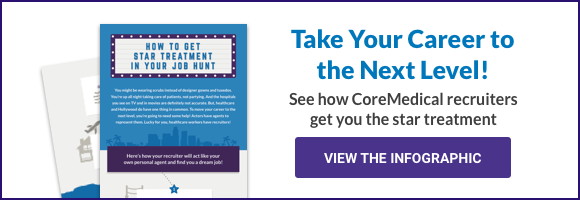
If you’re anything like me, maybe you are itching to get your foot in the “medical SLP” door by doing some PRN work in Home Health (HH). Perhaps you are already working in a hospital or SNF and are interested in exploring a new setting. As we know, each employment setting is a little bit different and comes with a unique set of perks and challenges. In order to save you some time and a few headaches, I am going to share with you 10 things to know (and a few practical tips) before starting as a home health SLP.
1. Early appointments are a challenge
I don’t know about you, but when I picture my grandparents or geriatric patients, I tend to think of them sitting at the kitchen table at 5AM, drinking coffee, and reading a newspaper. Never did I imagine such contention with an 8:00AM or 9:00AM appointment. Most patients hate early appointments and will likely complain about them.
2. Get cozy with your car
You will be spending a significant amount of time in your car. Make sure to keep up on maintenance and consider the weather in your area and appropriate materials. Are you in a cold and snowy area like I am? Do you need snow tires? An emergency kit? Other things I recommend include an organizational tool of some kind to store your materials, a large water bottle, a good lunch bag, a phone mount, and a GPS.
3. Find the good bathrooms
This may seem like a silly tip, but trust me on this one. It is important. When you spend all day traveling, you will quickly learn two things:
- You most likely do NOT want to use the bathrooms in your clients’ homes.
- All public restrooms are not created equal.
Most major stores (e.g. Target or Walmart) have bathrooms that are fairly well-kept and also have the extra perk of allowing you to grab a quick mid-day snack or coffee as well — thank you, Target Starbucks! Gas station bathrooms are not a good idea. We will just leave it at that.
Another great place you may not have considered is public libraries. They tend to be fairly common, especially in larger cities, and they are generally very nice! You can thank me later for that one.
4. Create your own work space
Don’t assume there will be a table and chair for you work at or that if there is one, don’t assume that it will not be covered in piles of mail. Not only that, but many of our patient have difficulty transferring and spend most of their time in bed or on a couch. Be prepared to sit for an hour or more on a couch, bed, in a lawn chair, or maybe on the floor. That being said, be mindful of your posture! It is easy to slip into poor posture and to strain your neck or back if you sit unsupported for extended periods.
5. Be flexible
Home health is full of unknowns. Patients will refuse to open the door. They will call you to cancel as you’re pulling into their driveway. You will get stuck in traffic. You will arrive to a session and find another discipline just started. Flexibility is absolutely crucial. You are prepared for HH if you are prepared for anything. You never know what you might walk into. Fleas, an entire wall covered in stuffed animals, dogs, crying babies . . . just remember that these people are letting us into their lives and personal space. Remain calm, be professional, and make the best of whatever situation you happen upon.
6. Take advantage of the environment
The inherently personal nature of this setting allows us to create amazing relationships with our patients and their families. It also provides opportunities for very functional therapy and a natural environment, that is not always a possibility in other settings. That book or magazine on the nightstand, a pile of laundry that needs to be sorted, a grocery list that needs to be made . . . all great functional tools for therapy.
7. Involve caregivers
In other settings, clinicians are not always afforded the benefit of having caregivers present for the duration of our sessions. While this can be intimidating at first, you will quickly realize it is a rewarding and critical aspect of HH. We might see our patients for an hour twice a week, but their spouse or children are there much more often. Educating these individuals and training them (think oral care or communication strategies) is beneficial for everyone involved.
Your patient is much more likely to follow through with any home programming or practice with the support of their loved ones. If things are being done between sessions, it also can mean more progress, faster.
8. Communication is key
I know, I know. Big surprise, right? Given the nature of HH, in-person communication just isn’t feasible most of the time. You might not see your colleagues until the next team meeting, so emailing, phone calls, and texting will become your primary means of communicating. There are so many things to report on (e.g. diet changes, falls, hospitalizations, missed visits, communication with families) that need to be reported to the patient’s primary care physician or that you'll want to share with your team.
You also need to document it! Create a system that works for you and stick to it. In addition, hearing loss is very common in this population, both with our patients and their families. When speaking to them over the phone, make sure you speak loudly and clearly, and repeat your phone number twice when leaving a message.
9. Take initiative
Caseloads fluctuate in HH and lulls do happen. While most of your referrals will come through admissions from referral sources set up by the agency, it is not uncommon for patients to be referred to the agency with only services other than speech therapy. Your coworkers can be referral sources, IF they know what to look for.
Don’t assume that your team knows all of the things in our scope of practice that might warrant a speech therapy evaluation. Offer to provide an inservice to the team, provide examples of diagnoses that often require speech therapy, signs or symptoms that might warrant a speech-language consult or evaluation, and “red flags” in the medical records. Take the initiative to educate your team, so that you get appropriate referrals.
10. It can be lonely, but only if you let it
It is not uncommon for there to be only one SLP in an agency. I have experienced it myself. In addition, you will spend a lot of time traveling and less time in an office with your colleagues. lt can be lonely not having people to bounce ideas off of or eat lunch with. Make an effort to connect with your team, even if they are members of other disciplines.
If you find that you are seeking some speech-specific camaraderie, there are a number of SLP Facebook groups where you can network with other HH SLPs. My favorites include SLPs in Home Health Care and Home Health SLP OT and PT Collaboration Group.
Challenges and opportunities for the home health SLP
Home health care can be a challenging setting, but it’s also very rewarding. Armed with these tips and knowledge, you are now better equipped to successfully get started in home health care and provide fantastic patient care. Still have questions? Send us a message and maybe we can help!
